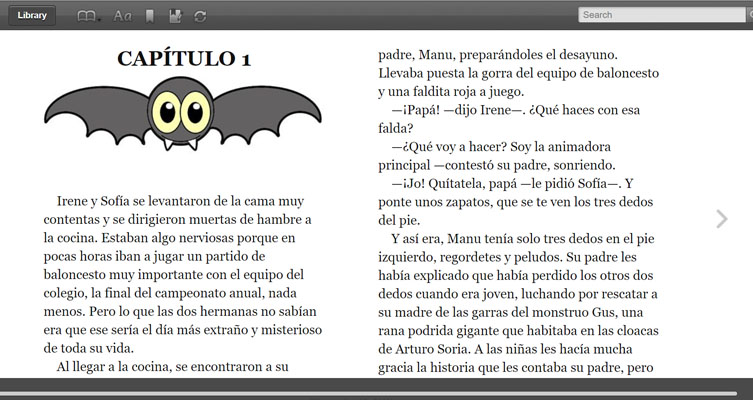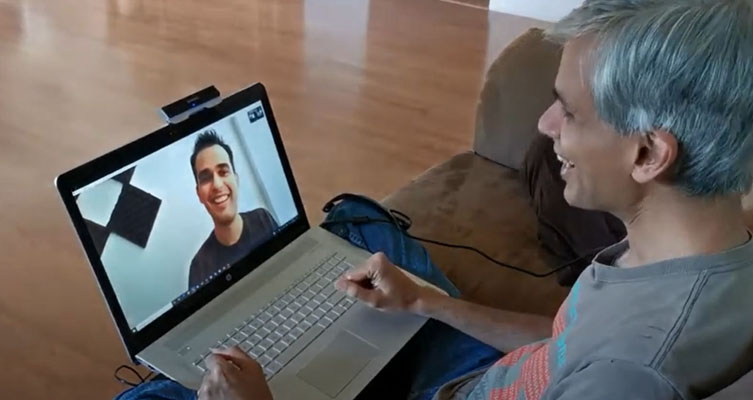When I started taking online lessons several years ago, I wasn't vocal at all about the way I like to learn. I was pretty nervous, still very insecure about talking in the language I was learning and simply let the teachers guide the lessons. Sometimes I had a good lesson and sometimes I didn't like the lesson at all. I remember one particular lesson where the teacher had prepared a video, then a song, then another video and then an activity where I had to put objects in certain places. It might have been the perfect lesson for some students, but all I felt like doing that day was talking. I think that it was after this lesson that I became more vocal about what I did and did not want to do during my lessons.
My own experiences led to the implementation of Lesson Wishes in PolyTripper. After booking a lesson, students get a space where they can fill in their lesson wishes. They can mention specific subjects they want to talk about, any grammar they want to work on, activies they would like to do, whether they like being corrected, anything that can help let the teacher know what to prepare (or not prepare). It can greatly help the student have a lesson that they will enjoy and that will be effective. And of course it will be very helpful for the teacher as well.
Try to be vocal about what you do and don't like to do during your lessons.

Here are some activities that you can try out during your lessons.
Conversation is of course a very important part of online lessons. Try as much as possible to only communicate in the language you are learning. If you don't understand a word, you will learn a lot more if the teacher describes it to you than if he or she just gives you the translation.
Teachers are usually pretty good at asking lots of questions to get you to talk. However, I do want to mention some conversation topics that might be helpful.
- What You Did Last Weekend / Recently
Teachers will often ask you this question and it's usually a great way to start a conversation, unless you spent all day inside in your pajamas doing absolutely nothing.
- Movie / Series / Book Description
It can be a really good exercise to describe what happened in a movie or series you watched or in the book that you're reading. Try to describe all the events, who did what and what happened next. Try to give as many details as possible.
- Cultures
Your teacher most likely comes from a different culture and it can be a lot of fun talking about the differences between your country and your teacher's country.
- Your trips / Vacations
Describing one of your vacations is good practice and usually a very pleasant conversation topic. You can talk about how you got to your destination (car, plane, boat, bike) and what you did while you were there.
- Life Experiences
Most people have stories to tell and your language lesson is a good place to tell them! How did you learn how to drive? What was your biggest cooking failure? What happened when you lost your passport? You can tell your teacher all about it and improve your language skills while doing so.
- Hobbies
Talking about your hobbies is a great way to learn more vocabulary. You can talk about your favorite sports, games, cooking, nature walks, photography, traveling, knitting, kite flying, scuba diving, hang gliding or anything else that you enjoy in life.

If you're having trouble understanding a certain grammar issue, you can ask your teacher to help you with it. It works really well if you ask the teacher several days or a week before your lesson, so they can prepare something for you. You can ask your teacher if they can also include an exercise, since practicing with real examples is often a great way to check if you understood everything. Professional teachers should have absolutely no problem doing this for you. Informal teachers aren't required to do any grammar with their students, but some actually enjoy it and would love to help you too. Just check with your teacher beforehand!
You can write a text a couple of days before your lesson and send it to your teacher, so he or she can review and correct it during the lesson. You can use the same subjects I mentioned under Conversation. Just make sure you don't make your texts too long. You don't want to give your teacher pages and pages to correct. It's best to keep your text to one or two paragraphs. Try to write without using Google Translate.
One exercise that is excellent for building vocabulary, learning grammar, working on your pronunciation all at the same time is reading a book together with your teacher. I've done that a lot during my lessons. You can get an online book (Amazon has many free books in different languages), open it on your computer and then do a screen share of your book. That way your teacher can read along. You can then start reading the book out loud and stop every time you have a question. Your teacher can correct you when you mispronounce something and explain anything you don't understand, like a word, an expression or the use of a certain verb tense. It's a very powerful learning experience that you can start even when you're still a beginner, because you will have your teacher to help you every step of the way.

Games can be a fun way to work on your vocabulary.
- Word Description
The teacher writes down a word and you have to guess what it is. You can ask questions, but they have to have either a yes or no answer. Examples can be "Is it bigger than a goat?", "Is it an object?", "Is it inside?", "Is it alive?". The questions have to be in the language you are learning of course! You can also turn the game around, write down a word and have the teacher ask you questions, which can help practice your comprehension.
- The Stop Game
Either you or the teacher will randomly pick a letter. The teacher will then list 5 categories (he or she can write them down for you). Both you and the teacher will have to think of a word in each category that starts with the chosen letter. The first one that's done shouts "Stop" and whoever has the most correct words wins. Categories can include: occupation, food, fruit, things, nationalities, clothing, animals, things you find in the home, colors, things you find in your fridge, furniture, languages. The teacher can choose categories that are suitable for your level.
You can try out any of these activities during your lessons to see if you like them. If there are other things you like to do during lessons that have not been mentioned, you can put them in the comments.




 ,
,